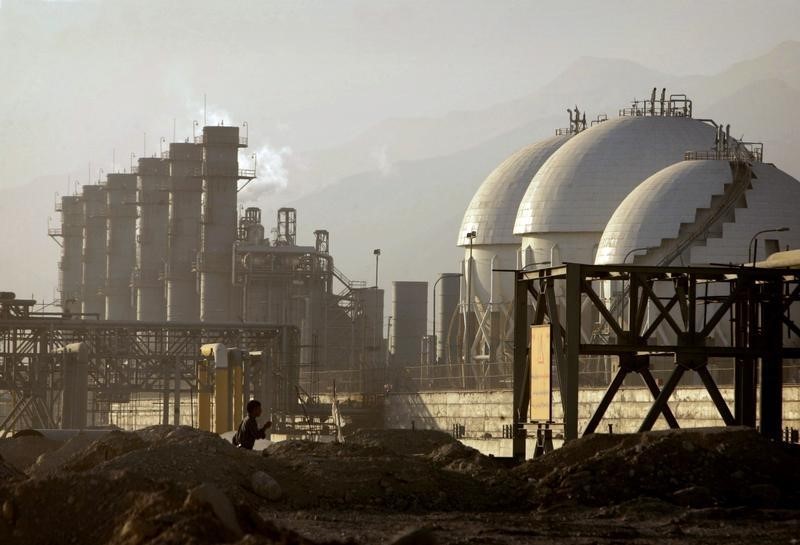Investing.com-- Oil prices settled just lower Tuesday, as traders weighed up potential new U.S. sanctions that could further curb the Tehran's oil exports just as geopolitical tensions continue to simmer as traders await Israel's response to the recent Iranian attack.
At 19:30 ET (13:30 GMT), West Texas Intermediate crude futures slid 0.1% to settle at $85.36 a barrel, while Brent oil futures fell 0.1% to $90.02 a barrel.
U.S. sanctions on Iran incoming as Middle East tensions continue to simmer
The U.S. is eyeing new sanctions against Iran that could further dent the Islamic Republic's oil export, Treasury Secretary Janet Yellen said Tuesday.
“Clearly, Iran is continuing to export some oil,” Treasury Secretary Janet Yellen said Tuesday. “There may be more that we could do."
The threat of new sanctions on Iran comes after Tehran launched a large-scale drone and missile strike against Israel, raising the risk that the tit-for-tat skirmish could break out into a wider conflict in the Middle East.
A wider conflict in the oil-rich Middle East would threaten to disrupt crude supplies, boosting oil prices.
"The key for markets will now be the extent of the retaliation. Should Israel follow up with similarly ambitious missile attacks or, under a worse-case scenario, other nations become embroiled in the conflict, notably the US, then we would likely see a flight to safety in markets, whereby investors flock to the safe-havens at the expense of high-risk assets,according to Matthew Ryan, Head of Market Strategy at global financial services firm Ebury.
“The threat to global oil supply would also likely trigger a sharp move upwards in oil prices, which could comfortably jump above $100 a barrel should investors fear a wider regional war.”
Israel is weighing up its response to the attack, which is expected to be measures to avoid a further escalation amid calls from its international allies calling for restraint.
Fresh US supply data on tap
Beyond geopolitical tensions, the latest update on U.S. weekly crude supplies is likely to garner investor attention.
Data on U.S. crude inventories, from the American Petroleum Institute, later in the session will be studied carefully, after last week's data from the industry body showed that crude stockpiles rose more than expected.
(Peter Nurse, Ambar Warrick contributed to this article.)
